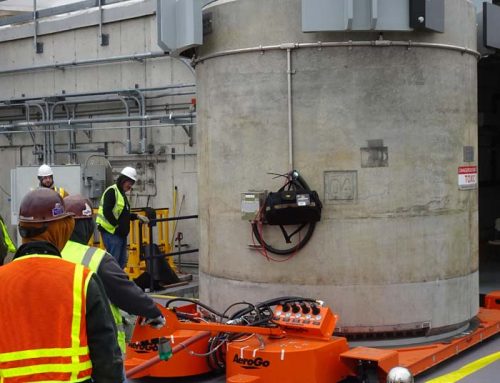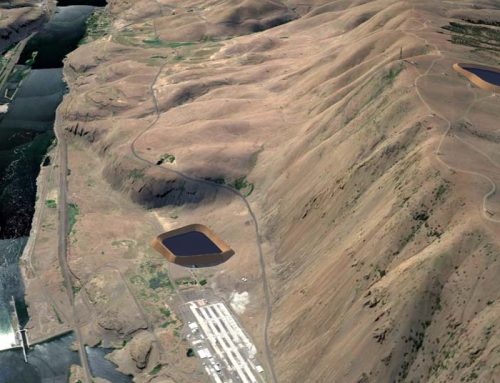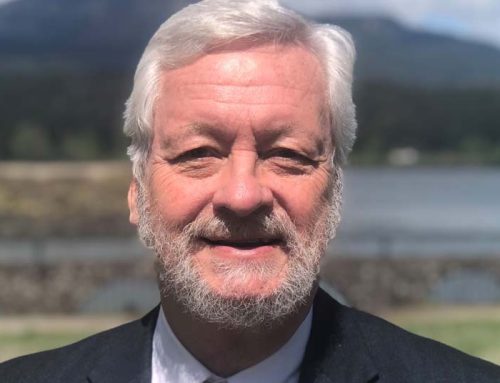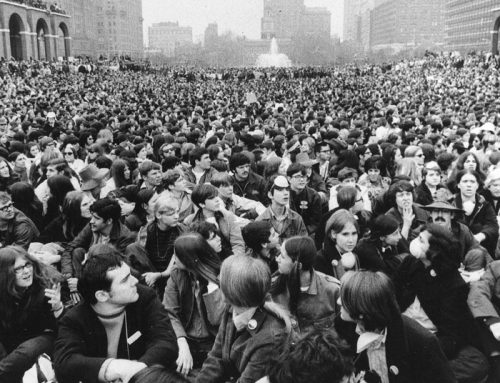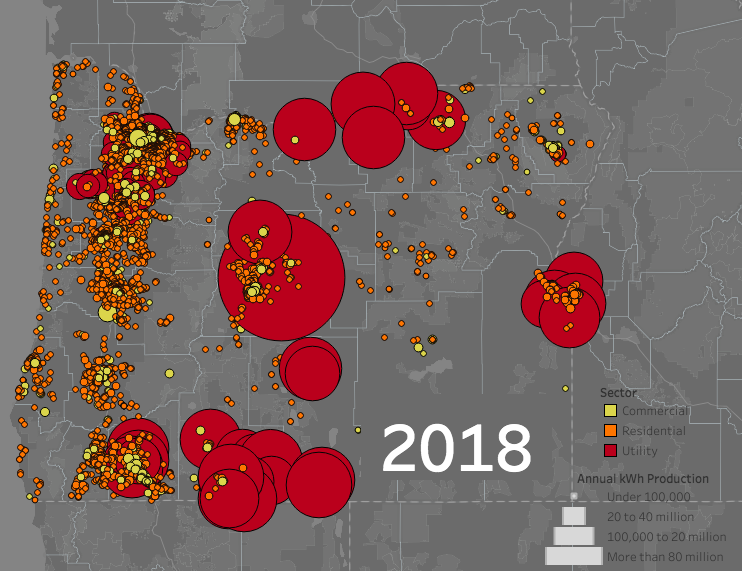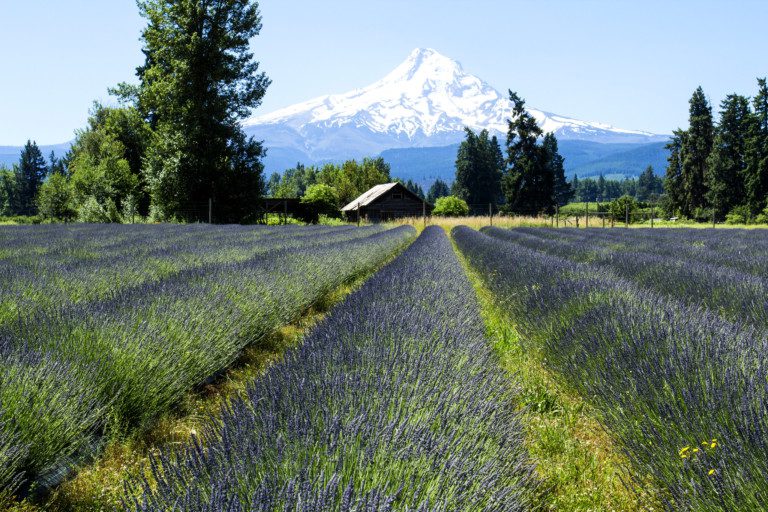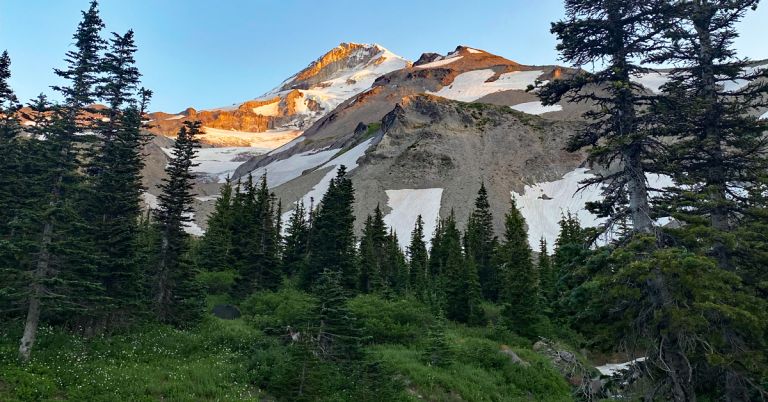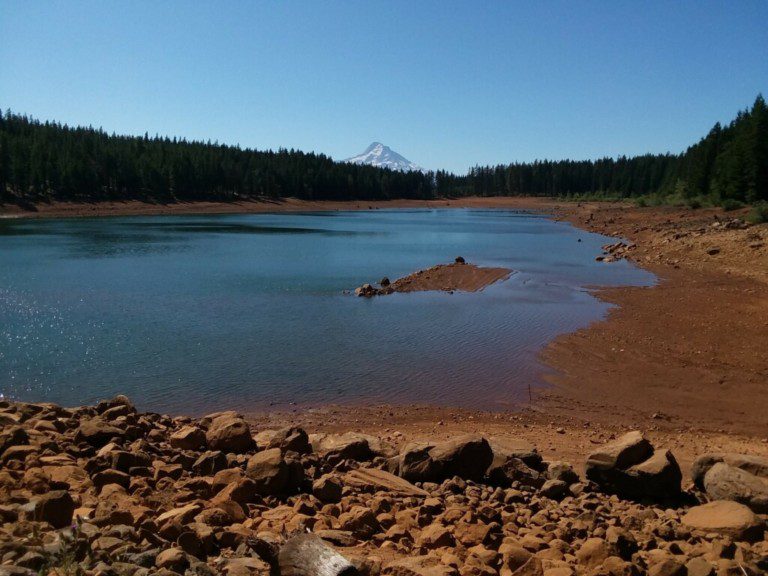
Chris Dennett of E2 Environmental Entrepreneurs.
A standing room only crowd convened in the Hood River Fire Station meeting room on Wednesday November 2, 2016 to discuss and learn about Hood River County’s Energy future. Two panel discussions covered an array of topics including climate smart business, water and energy efficiency, LEED certification, clean tech investments, solar projects, waste water treatment, efficient lighting, and future energy plans. Hood River County hosted the event with support from Gorge Owned, E2 Environmental Entrepreneurs, and the Energy Trust of Oregon.
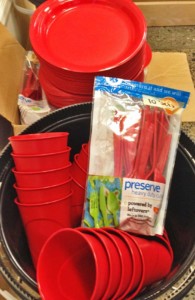 The morning started off with coffee, but instead of the typical disposable cups, we drank from red reusable plastic cups with matching plates and cutlery made from yogurt containers. This set of reusable cutlery is available on loan for free from Tri-County Hazardous Waste for small to mid-sized events to avoid more disposable cups and plates entering the waste stream (contact David Skakel to arrange a loan).
The morning started off with coffee, but instead of the typical disposable cups, we drank from red reusable plastic cups with matching plates and cutlery made from yogurt containers. This set of reusable cutlery is available on loan for free from Tri-County Hazardous Waste for small to mid-sized events to avoid more disposable cups and plates entering the waste stream (contact David Skakel to arrange a loan).
Several speakers, including Niklas Christensen from Watershed Professionals Network, discussed irrigation efficiency — a topic recently delved into by EnviroGorge writer Sunnie Brown (see ‘Irrigating Our Future in the Midst of Climate Change.’) Christensen says Hood River County’s temperatures are predicted to rise at least 1.4 degree Celsius by 2040, which will lead to more rain and less snow pack; therefore, leaving “half as a much water to use for irrigation as now.”
Just a few degrees can make a difference in irrigation needs when planting vineyards that will have a 20-40 year lifespan, James Mantone of Syncline Wine Cellars told the audience. “Rethinking our soil for farming crops is necessary, because disease is a manifestation of soil imbalance. We need to encourage fungal colonies and increase water efficiency.” He explained the benefits of intensive mapping and soil testing when developing a new vineyard, and designing irrigation according to natural soil transitions.

James Mantone, Syncline Wine Cellars
Irrigation needs can be decreased dramatically over the lifetime of the vineyard by delivering precise water, which also leads to better fruit quality. This is important in the areas with low annual precipitation and poor soil, like the areas he farms near Catherine Creek in Washington. He said Willamette Valley wineries are interested in moving to the Gorge due to warming the climate. Temperatures in the Gorge are becoming more suitable for their grapes. Mantone hopes that wineries and farmers will share information about ‘responsible use ag,’ and thus decreasing irrigation and spraying by proper planning and improved soil fertility.
“The Gorge is sort of a ground zero for these conversations to start,” said Chris Dennett of E2 in his introduction about clean tech solutions.
The LED revolution was discussed by Jonathan Lewis of Hire Electric. He also talked about the limited solar incentives in Washington. Lewis predicted that in five years there may be no more incandescent or fluorescent lighting due the exceptional efficient quality and prices of LED lights. However, there are concerns that the low cost could lead to increased outdoor lighting. Without building codes in place, it could lead to “the end of the night sky” in rural areas.
Mark Lago from the City of Hood River noted that Hood River street lights will be switching to LEDs. He also discussed the status of a waste water treatment plant biogas converter program and plans to install solar panels on the Hood River Public Works building.
Amanda Lawrence of Gorge Owned (GO!) announced that they will be continuing their Go! Solar Program for a third year. This year the focus will be on businesses installing solar panels in Hood River County. In previous years, GO! Solar spanned several counties, but currently, the incentives are more readily available in Hood River County. Although many solar incentives previously available in Klickitat and other counties are not available this year, people living or owning businesses in Washington or Wasco County are still encouraged to contact Go! Solar for more information or to get connected with a contractor.
Dan Orzech of Oregon Clean Power Cooperative talked about plans to enable people (via the co-op) to invest money in local projects such as putting solar panels on city buildings in their home town.
The Hood River County Energy Action Plan Steering Committee, comprised of 7-15 community leaders, met after the panel discussion. This committee will convene monthly to help determine the county’s energy goals, identify project priorities, and pinpoint funding sources for implementation. If you would like more information on these or other topics discussed at the Hood River County’s Energy Future meeting, or are interested in serving on this committee, please contact Marla Harvey at marla.harvey@co.hood-river.or.us.
Support our Work!

